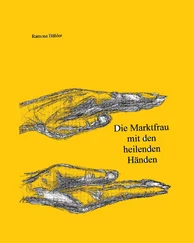Dan Singer - Start-up Nation
Здесь есть возможность читать онлайн «Dan Singer - Start-up Nation» весь текст электронной книги совершенно бесплатно (целиком полную версию без сокращений). В некоторых случаях можно слушать аудио, скачать через торрент в формате fb2 и присутствует краткое содержание. Жанр: Старинная литература, на английском языке. Описание произведения, (предисловие) а так же отзывы посетителей доступны на портале библиотеки ЛибКат.
- Название:Start-up Nation
- Автор:
- Жанр:
- Год:неизвестен
- ISBN:нет данных
- Рейтинг книги:3.5 / 5. Голосов: 2
-
Избранное:Добавить в избранное
- Отзывы:
-
Ваша оценка:
- 80
- 1
- 2
- 3
- 4
- 5
Start-up Nation: краткое содержание, описание и аннотация
Предлагаем к чтению аннотацию, описание, краткое содержание или предисловие (зависит от того, что написал сам автор книги «Start-up Nation»). Если вы не нашли необходимую информацию о книге — напишите в комментариях, мы постараемся отыскать её.
Start-up Nation — читать онлайн бесплатно полную книгу (весь текст) целиком
Ниже представлен текст книги, разбитый по страницам. Система сохранения места последней прочитанной страницы, позволяет с удобством читать онлайн бесплатно книгу «Start-up Nation», без необходимости каждый раз заново искать на чём Вы остановились. Поставьте закладку, и сможете в любой момент перейти на страницу, на которой закончили чтение.
Интервал:
Закладка:
There is an ever-increasing growth in demand for oil, with China and India the most prominent examples of countries that need more oil. Beginning in 1998, India and China’s combined demand increased by a third in less than a decade. So however much the price of oil fluctuates, the demand is undergoing a global transformation.
But the Arab world’s oil economy has stymied high-growth entrepreneurship. Distributing oil wealth largesse to the masses has insulated governments in the Persian Gulf from pressure to reform politically and economically. Oil wealth has cemented the power of autocratic governments, which do not have to collect taxes from their citizens and therefore do not need to be terribly responsive to their complaints. As historians of the Muslim world have put it, in Arab countries “the converse of a familiar dictum is true: No representation without taxation.” 12
The badly needed reforms that the elites regard as a threat—the right to free expression, tolerance of experimentation and failure, and access to basic government economic data—are necessary for a culture in which entrepreneurs and inventors can thrive. For precisely all the reasons that entrepreneurship helps economies grow and societies progress—it rewards merit, initiative, and results rather than status—the Persion Gulf governments have stifled it. This is what political scientist Samuel Huntington once called the “king’s dilemma”: all modernizing monarchs ultimately try to balance economic modernization with limits on liberalization, since liberalization challenges the monarch’s power. In the Arab world, British journalist Chris Davidson, author of Dubai: The Vulnerability of Success , calls this the “sheikh’s dilemma.”
With the exception of Lebanon and Iraq, there has never been a genuinely free election in any of the other twenty-two Arab League countries. After one attempt at an election in the UAE in 2006 attracted low voter turnout, a prominent member of the government remarked, “This is particularly disappointing given that all of the candidates and participants were from very good families, and were all personally approved by the UAE’s rulers.” 13
A number of Persian Gulf Arab governments have sought to work around the “sheikh’s dilemma” by using oil wealth to modernize the hard infrastructure of their economies, while leaving the political structures virtually untouched. Income from the previous oil booms—in the 1970s—was not absorbed by the regional economies but, rather, spent on imports from the West, investments overseas, and military arms. The local economies saw little direct benefit. But since 2002, over $650 billion from this new—demand-driven—oil windfall have been reinvested in the gulf economies alone.
Alongside the cluster strategy adopted by Dubai and a number of other gulf Arab countries, much of the region’s oil revenues have gone into real estate development. The GCC real estate sector has been the fastest growing in the world. Between 2000 and 2010, an estimated 19.55 million square yards of new leasable space—new office buildings, shopping malls, hotels, industrial facilities, and housing developments—will have been added in the region, mostly in Saudi Arabia and the UAE, growing at 20 percent annually during this period. (China’s annual growth in leasable space was 15 percent.)
But as in much of the rest of the world, the Persian Gulf real estate bubble has burst. As of early 2009, residential and commercial values in Dubai, for example, have declined by 30 percent and are expected to plummet further. Home owners have actually been abandoning their homes and just leaving the country—to avoid the prospect of imprisonment for failure to pay a debt. Large-scale construction projects have been frozen.
Neither oil nor real estate nor clusters have built a high-growth entrepreneurial or innovation economy.
With the demographic time bomb ticking, the gulf’s oil-rich governments have also tried to build academic research clusters. Every technology cluster has a collection of great educational institutions. Silicon Valley famously got its start in 1939 when William Hewlett and David Packard, two Stanford University engineering graduates, pooled their funds of $538 and founded Hewlett-Packard. Their mentor was a former Stanford professor, and they set up shop in a garage in nearby Palo Alto.
But the Arab world’s cultural and social institutions, as was reported by a U.N.-sanctioned committee of Arab intellectuals, are chronically underdeveloped. The United Nations’ Arab Human Development Report, which presented the organization’s research from 2002 through 2005, found that the number of books translated annually into Arabic in all Arab countries combined was one-fifth the number translated into Greek in Greece. The number of patents registered between 1980 and 2000 from Saudi Arabia was 171; from Egypt, 77; from Kuwait, 52; from the United Arab Emirates, 32; from Syria, 20; and from Jordan, 15—compared with 7,652 from Israel. The Arab world has the highest illiteracy rates globally and one of the lowest numbers of active research scientists with frequently cited articles. In 2003, China published a list of the five hundred best universities in the world; it did not include a single mention of the more than two hundred universities in the Arab world. 14
Recognizing the importance of universities for R&D, which is necessary for patents and innovation, Saudi Arabia is opening the King Abdullah University of Science and Technology, to create a research home for twenty thousand faculty and staff members and students. It will be the first university in Saudi Arabia to have male and female students in the same classes. Qatar and the UAE have established partnerships with iconic Western academic institutions. Qatar’s Education City houses satellite campuses for Weill Cornell Medical College, Carnegie Mellon University’s computer science and business administration programs, a Georgetown University international relations program, and a Northwestern University journalism program. Abu Dhabi—one of the seven emirates in the UAE—has established a satellite campus for New York University. The idea is that if Arab countries can attract the most innovative researchers from around the world, it will help stimulate an innovation culture locally.
But these new institutions have not made much progress. They cannot recruit a reliable stable of foreign academic talent to lay roots and make a long-term commitment to the Arab world. “It has been more about bringing education brands to the gulf than immigrating and assimilating brains,” Chris Davidson told us. “These universities are focused on national reputation building, not real innovation.” 15
Israel’s case was different. Top-notch universities were founded well before there even was a state. Professor Chaim Weizmann, a world-renowned chemist who helped launch the field of biotechnology with his invention of a novel method of producing acetone, commented on this oddity at the inauguration of the Hebrew University of Jerusalem on July 24, 1918: “It seems at first sight paradoxical that in a land with so sparse a population, in a land where everything still remains to be done, in a land crying out for such simple things as ploughs, roads, and harbours, we should begin by creating a centre of spiritual and intellectual development.” 16
The Hebrew University’s first board of governors included Weizmann, Israel’s first president, as well as Albert Einstein, Sigmund Freud, and Martin Buber. The Technion was founded in 1925. The Weizmann Institute of Science followed in 1934 and, in 1956, Tel Aviv University—the largest university in Israel today. Thus by the late 1950s, Israel’s population was only around the two million mark and the country already had the seeds of four world-class universities. Other major universities, such as Bar-Ilan University, University of Haifa, and Ben-Gurion University of the Negev, were founded in 1955, 1963, and 1969, respectively.
Читать дальшеИнтервал:
Закладка:
Похожие книги на «Start-up Nation»
Представляем Вашему вниманию похожие книги на «Start-up Nation» списком для выбора. Мы отобрали схожую по названию и смыслу литературу в надежде предоставить читателям больше вариантов отыскать новые, интересные, ещё непрочитанные произведения.
Обсуждение, отзывы о книге «Start-up Nation» и просто собственные мнения читателей. Оставьте ваши комментарии, напишите, что Вы думаете о произведении, его смысле или главных героях. Укажите что конкретно понравилось, а что нет, и почему Вы так считаете.












